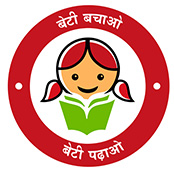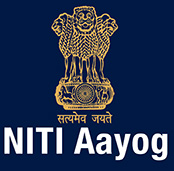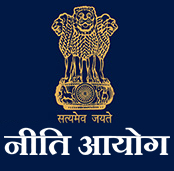- Overview
-
Public Finance and Policy Analysis (PFPA) undertakes the appraisal of public-funded projects and schemes costing Rs 500 crore and above in consultation with the subject divisions of NITI Aayog. This is done before they are considered for recommendation/decision by the Public Investment Board or Expenditure Finance Committee (depending on the nature of the project and its cost).
PFPA appraises proposals of the Ministry of Railways costing Rs 500 crore and above, to be considered by the Expanded Board of Railways (EBR). PFPA also appraises Revised Cost Estimate (RCE) proposals to analyze the factors attributed to cost and time overruns and their impact on viability.
- Core Functions
-
Public Finance and Policy Analysis (PFPA) vertical shall be responsible for the following:
-
Undertake techno-economic appraisal of major projects and programmes in the public sectors, applying the acknowledged principles of Policy Analysis and Public Finance and extent government policy guidelines for various sectors.
-
The methodology involves assessing the appropriateness of public expenditure through economic feasibility analysis, delineation of responsibilities between the central and state governments, fiscal decentralization, efficiency factors like value for money and risk management, adoption of project management best practices in implementation, focusing on outcomes, and adopting a convergent approach with application of cross-sectoral learnings.
-
To represent NITI Aayog as a member of various committees such as EFC/PIB/CEE and EBR
-
Recommend guidelines and formats for the submission of expenditure proposals for various public funded schemes and projects.
-
Undertake research studies to improve the methodology for techno-economic appraisal to keep them in conformity with the best practices in Policy Analysis and Public Finance and with a view to improve the quality of public expenditure though better scheme/project formulation & appraisal.
-
Assist Central Ministries/States to establish proper procedures for development of scheme and project proposals.
-
To analyse and give recommendations on all Preliminary Project Reports (PPR) for externally aided project proposals, which are likely to culminate into an EFC/PIB proposal at a later stage.
-
To analyse issues related to financial restructuring, Internal and Extra Budgetary Resources and Capex plans of Central PSUs, including proposals for creation of JVs and Subsidiaries of PSUs based on specific references received.
-
To maintain a database of all public funded schemes and projects as per the prevailing financial limits of the EFC/PIB/EBR.
-
Undertake research on cross sectoral issues related to public funded schemes and projects
-
Capacity building initiatives in the area of Policy Analysis and Public Finance
-
- Partners
-
PFPA actively engages with various Departments, State Governments, and statutory bodies.
- Line Ministries
-
-
Department of Expenditure, Ministry of Finance
-
All Central Ministries and Departments
-
- Reports
-
During FY 2020–21, appraisal of 196 schemes/programmes contained in the EFC/PIB/EBR proposals and involving an outlay of Rs 41,40,349 crore was undertaken. The sectoral distribution of projects appraised from 1 April 2020 to 31 March 2021 is set out in the table below:
SECTORS No. Cost (Rs Cr) AGRICULTURE Agriculture and Allied Sectors 12 564524 ENERGY Power 10 647288 Coal 3 17343 Petroleum and Natural Gas New and Renewable Energy 3 19894 TRANSPORT Railways 4 3744 Surface Transport 6 32263 Civil Aviation 4 2233 Shipping 1 1624 INDUSTRY Heavy Industry and Public Enterprises 1 57048 Micro, Small and Medium Enterprises 2 29423 Steel and Mines 2 6562 Petrochemicals and Fertilisers 6 435330 Textiles 4 45270 Food Processing Industries 4 37224 Commerce and Industry 13 125244 SCIENCE and TECHNOLOGY Biotechnology Science and Technology 4 10190 Scientific and Industrial Research Ocean Development Earth Sciences SOCIAL SERVICES Education/HRD 8 434846 Culture 1 10 Youth Affairs and Sports 5 16335 Health and Family Welfare 15 232370 Women and Child Development 1 205750 Labour and Employment 2 23514 Social Justice and Empowerment 13 110942 Housing and Urban Poverty Alleviation 4 106424 Rural Development 5 373892 Minority Affairs Tribal Affairs 12 116849 Drinking Water Supply and Sanitation Food and Public Distribution COMMUNICATION Information and Broadcasting Post Electronics and Information Technology 1 7350 Communication OTHERS Home Affairs 14 182902 Tourism Environment and Forests 6 14058 Law and Justice 3 19059 Water Resources 4 47346 North Eastern Region (DONER) 3 39616 Consumer Affairs 3 18892
Finance/Corporate Affairs 5 77227 Planning Commission/NITI Aayog 2
49324
External Affairs Statistics and Program Implementation Parliamentary Affairs Panchayati Raj 1
566
Housing and Urban Affairs 5
25438
Skill Development and Entrepreneurship 1
948
Personnel, Public Grievances and pensions 3
1474
Total
196
41,40,349 - Projects
-
Applying the iDEX Model for Public Procurement of Innovation in Civil Sector Challenges
Launched in 2018, the Ministry of Defence's Innovation for Defence Excellence (iDEX) scheme aims to promote indigenous capabilities in the defence sector by engaging a wide range of stakeholders, including startups and MSMEs. The scheme fosters research and development, leading to the development of advanced defence technologies and equipment.
The PFPA division has formulated a discussion paper which analyzes the guidelines and operational aspects of the iDEX scheme that enable the sustained procurement of products developed under the scheme by the Ministry of Defence. It also compares the iDEX scheme with other innovation schemes launched by various ministries and departments of the Government of India. The paper concludes by suggesting how the iDEX framework can be adapted for use in civilian sectors and proposes indicative problem statements that can be addressed using the iDEX-based approach.
Production-Linked Incentive Scheme
NITI Aayog assisted in designing and formulating the contours of the Production-Linked Incentive (PLI) scheme for active pharmaceutical ingredients, high-efficiency solar PV modules, medical devices and mobile manufacturing sectors, among others.
National Program and Project Management Policy Framework
NITI Aayog had constituted a task force on project and program management, with the objective of laying down a plan of action advocating short- and long-term strategies for improving project and program management practices and aligning them with global best practices. The task force made several suggestions. It underlined efforts at the planning stage and recommended augmenting organisational skillsets, improving stakeholder management, leveraging technology, tools and techniques, the need for more efficiency and transparency in procurement, establishing robust project governance, and the need to develop a national policy framework. Consequently, the ‘National Program and Project Management Policy Framework’ (NPMPF), envisaged to bring about radical reforms in the way infrastructure projects are executed in India, was launched on 28 October 2020. Hon’ble Union Ministers Shri Nitin Gadkari and Shri Piyush Goyal released the Indian Infrastructure Body of Knowledge, a book on the practice of program and project management in India.
Indian Public Procurement Reforms (Alternatives to ‘L1’)
NITI Aayog is working on reforms in public procurement. Currently, significant government expenditure is made towards public procurement of goods, works and services. There is a long-standing need for reviewing the efficacy of the existing methodology of bidder selection, through the Least Cost Selection (or ‘L1’) method. For high-impact projects and state-of-the-art equipment involving a high level of customisations, specialisation and cutting-edge technology, the L1 method often results in sub-optimal delivery, non-performances, higher life cycle cost, delays and arbitrations.
Based on detailed deliberations with various stakeholders, NITI Aayog has come up with a bouquet of options of alternative procurement strategies, which can be considered for inclusion in the General Financial Rules (GFR) 2017. This will enable public procurement authorities and agencies to select the appropriate method depending on project-specific requirements in a transparent manner and after exercising due diligence. It is under deliberation with the Ministry of Finance, CVC and CAG.
- Who's Who
-
Name Designation Room No. Email ID Shri Anurag Goyal Sr. Adviser & CVO 205 goyal[dot]anurag[at]gov[dot]in
cvo-niti[at]gov[dot]inMs. Sushma Narang PPS 210-A sushma[dot]narang[at]nic[dot]in Sh. Mukesh Kumar PPS 210-A mukesh[dot]kumar71[at]nic[dot]in Sh. Rajesh Gupta Director 220-C rajesh[dot]gupta75[at]gov[dot]in Ms. Meenakshi Bhatt P.A to Director 219-A Meenakshi[dot]bhatt[at]gov[dot]in Ms. Jyoti Khattar SRO 341 jyoti[dot]khattar[at]gov[dot]in Mr. Jagdish Singh SRO 440 Jagdish[dot]singh72[at]gov[dot]in Sh. Amaresh Nashi Sr. Associate 422 amaresh[dot]nashi[at]niti[dot]gov[dot]in
amaresh[dot]nashi[at]govcontractor[dot]inMs. Arpana Bhatt Consultant (PT) - arpana[dot]bhatt[at]nic[dot]in Ms. Saumya Gautam RO 426 gautam[dot]saumya[at]gov[dot]in Ms. Gargi Rao RO - gargi[dot]rao[at]gov[dot]in Sh. Aditya Vikram Sr. Associate 424 Vikram[dot]aditya[at]niti[dot]gov[dot]in Sh. Rajendra Singh RO 334 rajendra[dot]singh65[at]nic[dot]in Sh. Anand Kumar Ravichandran YP 5th Flr ak[dot]ravichandran[at]niti[dot]gov[dot]in
anandtoall[at]gmail[dot]comSh. Emil Fernandez YP W-55 emil[dot]fernandez[at]niti[dot]gov[dot]in Dr. Muniraju S.B. Deputy Adviser 301 mraju[dot]sb[at]gov[dot]in
Public Finance and Policy Analysis
 National Portal Of India
National Portal Of India 


